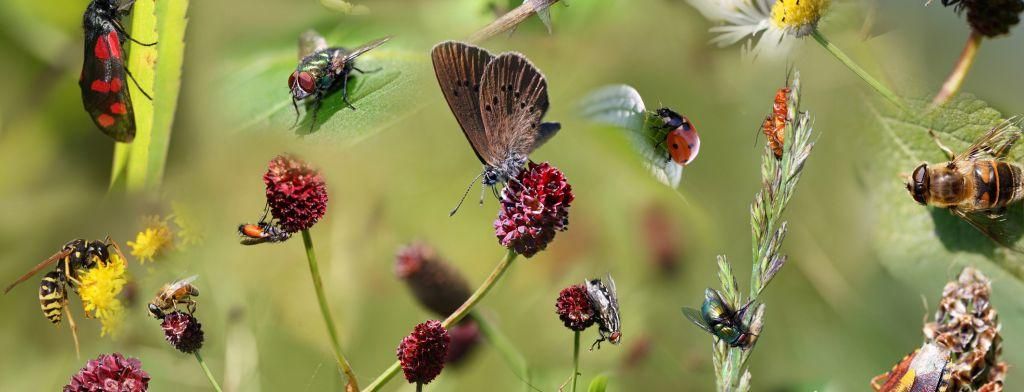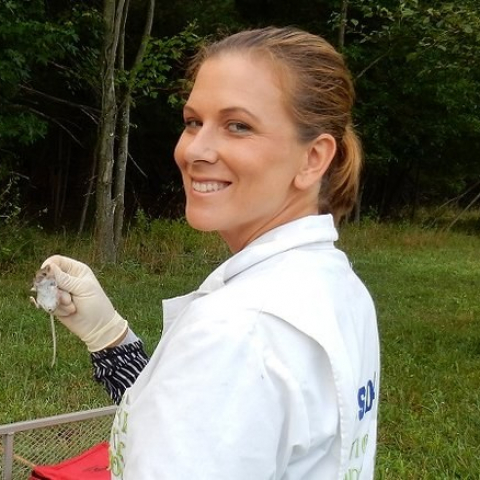Agroecology and Plant Interactions

The fundamental interactions between plants and the organisms that they interact with as well as the application of chemical ecology to solve problems in agriculture. By better understanding the evolution and interactions between plants, insects, microorganisms and the metabolites that connect them, we find potential sustainable strategies for pest management and agricultural practices.
Topics
- Plant-Herbivore interactions
- Insect Agroecology
- Insect Ecology
- Predator-Prey Interactions
- Mating Disruption
- Precision Agriculture
- Evolution of Chemical Defenses
Jared Ali
Associate Chair, Intercollege Graduate Degree Program in Ecology; Director of the Center for Chemical Ecology; Associate Professor of Entomology
Behavior and chemical ecology of multi-trophic interactions, including plant responses to below-ground herbivory and nematode. Insect community ecology, chemical ecology, and coevolution. Trophic cascades, above- and below-ground interactions, chemotaxis of soil nematodes, and evolution of plant defense strategies.
Surinder Chopra
Professor of Maize Genetics
Regulation of flavonoid biosynthesis during plant development and plant-pathogen interaction. Epigenetic regulation and allele specific patterns.
Francisco Dini-Andreote
Huck Early Career Chair in Microbial Community Ecology, Associate Professor of Plant Science
Microbiome, plant-microbe interactions, and community ecology. Harnessing the plant microbiome to enhance protection against biotic and abiotic stresses.
Gary Felton
Professor and Department Head of Entomology
Plant-herbivore interactions. Adaptive responses of herbivores to plant defenses. Herbivore cues recognized by plants with specific focus on biochemical and molecular analysis of salivary secretions.
David Geiser
Professor of Mycology
Genomics of fungi, applied to the evolution of plant and animal disease, toxin production, and beneficial roles. Fungal phylogenetics and population genetics, especially in Fusarium, and sequence-based identification tools. Identification of unique pathogen-specific genomic regions in pathogens, and diagnostic markers.
Christina Grozinger
Director of the Huck Institutes of the Life Sciences; Publius Vergilius Maro Professor and Huck Scholar of Entomology
Genomics of social behavior and health in bees
Sara Hermann
Assistant Professor of Arthropod Ecology and Trophic Interactions
Kelli Hoover
Professor of Entomology
Invasive species of forest insects; plant-insect-entomopathogen interactions; impacts of plants on pathogenesis; biological control of hemlock woolly adelgid
Seogchan Kang
Professor of Plant Pathology & Environmental Microbiology
Genetic and cellular mechanisms underpinning plant-fungal interactions with Arabidopsis thaliana and Fusarium oxysporum as a model system. Molecular genetics and comparative genomics of fungal plant pathogens. Bioinformatics.
Erika Machtinger
Associate Professor of Entomology
Veterinary entomology, including vector-borne diseases. Focus is on ecology and behavior associated with host-parasite interactions to improve or develop new control methods.
James Marden
Associate Director of Operations, Huck Institutes of the Life Sciences; Professor of Biology
How physiological variation within species affects their ecology and evolution. Primarily with insects, but recently also with plants, and a particular interest in allelic variation in the pathogen resistance genes of tropical trees.
Harland Patch
Assistant Research Professor; Research Associate of Entomology
Tanya Renner
Associate Professor of Entomology
Evolution of chemical and structural defense. Molecular evolution, evolutionary genomics, and transcriptomics. Origins and evolution of carnivorous plants.



















